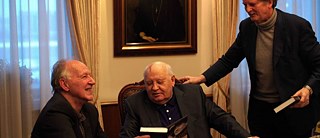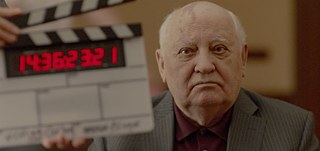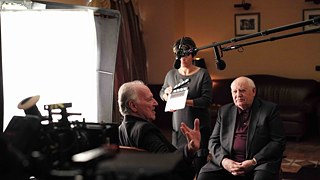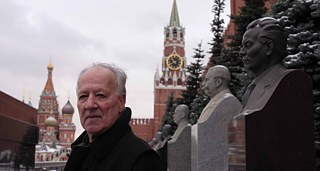Sydney Film Festival
Meeting Gorbachev: Herzog, history and hero worship

Somehow both flat and melodic, and pitched perfectly to lull listeners into an unshakable sense of security, Werner Herzog’s voice could convince anyone of anything. Or, that’s how it feels to hear to his tantalising tone, no matter what he’s speaking about.
Across his own documentaries as well as in works by other filmmakers, the German director’s vocal stylings have attained the status of cinematic treasure, laying bare the world’s truths with a disaffected rhythm that seems to intimate authority, eccentricity and intricate observation in every uttered sentence. But in Meeting Gorbachev, Herzog’s latest film, the auteur can’t persuade his subject to agree to his point of view or his intended opening point. His verbal magic has entranced the world for decades; however it doesn’t extend to Mikhail Sergeyevich Gorbachev — the man who last led, and oversaw the end of, the Soviet Union.

An Authentic Chat
What follows, in a documentary co-directed by Herzog’s regular producer André Singer (Little Dieter Needs to Fly, The Wild Blue Yonder, Into the Abyss), is a series of dialogues. The German filmmaker speaks to the audience through his lyrical narration, as overlaid upon archival footage that steps through Gorbachev’s life story. Ever his unique on-screen self, he chats with the former Soviet and Russian leader — and architect of glasnost and perestroika — in interspersed clips as well. And, silently as the conversation and film progresses, Herzog interrogates his approach courtesy of his verbal sparring partner’s answers. There’s no doubting that audiences are meant to hear, see and feel it all, including the latter — if Herzog can’t get Gorbachev to reflect his bleakly poetic views, then he’ll bake their clash into the documentary’s frames — but it gives Meeting Gorbachev an intriguing authenticity.
A Hero Unpacked
As well as compiling talking heads, period-era materials and contemporary drone views, Meeting Gorbachev capitalises upon this to-and-fro mood as it unpacks Gorbachev’s achievements, including his considerable role in Germany’s reunification. Accordingly, it’s a film where Herzog waxes that “it’s hard to imagine that from such a godforsaken place in the middle of nowhere, one of the greatest leaders of the 20th century emerged,” while taking viewers through Gorbachev’s rural birthplace — and one where Gorbachev himself, while never appearing less than honest, shows his skill at answering exactly what he wants and not an iota more. Detours and details sit side by side, with the director as committed to finding the comedy in the USSR’s swift succession of leadership changes in the early 1980s as he is to explaining what Gorbachev faced and conquered when he was in the top job. The former adds colour; the latter, including the end of the Cold War, the independence of Eastern Bloc countries and the fall of the Berlin Wall, speaks for itself.